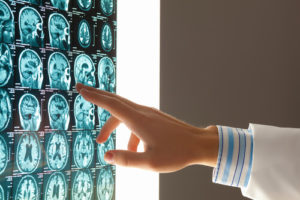
When someone suffers a traumatic brain injury (TBI), their recovery could take weeks, months, or longer. In some cases, the brain injury might never fully heal. Someone’s life could be forever changed by a TBI, especially if it has a lasting impact on their physical or cognitive functions. According to the Centers for Disease Control, for the year 2019, over 200,000 people were hospitalized for traumatic brain injuries.
A Florida traumatic brain attorney from Zervos & Calta, PLLC could make a difference in your case. Let us show you why so many other people in our community have trusted their personal injury claims to our team. For a free case review, call or contact us online.
What Are the Most Common Causes of Traumatic Brain Injury?
Traumatic brain injuries can be caused by everyday activities as well as dangerous jobs. Some of the most common causes of TBI include:
- Car accidents
- Slips, trips, and falls
- Assaults
- Domestic violence
- Truck accidents
- Motorcycle accidents
- Bicycle accidents
- Pedestrian accidents
- Work accidents
- Sports injuries
- Combat injuries
- Defective or dangerous products
- Medical malpractice
- Birth injuries
It is important to see a doctor immediately after any type of accident. Sometimes, the effects of a TBI are not immediately obvious. In these cases, it’s important to let your doctor know as soon as symptoms manifest. The sooner you begin treatment, the more effective it’s likely to be.
After you have sought medical care, contact our experienced Florida traumatic brain injury attorneys at Zervos & Calta, PLLC, so we can review your legal options. Our committed and compassionate lawyers are here to support you through this trying time.
What Are Some Common Characteristics of a TBI?
The symptoms and characteristics of a TBI will depend on the severity of your injury. A mild TBI — often referred to as a concussion — may cause less severe symptoms that resolve in a few days to a few weeks.
However, moderate to severe TBIs can have life-threatening characteristics. The Centers for Disease Control reported that in 2020, there were over 64,000 TBI related deaths.
What Are Physical Symptoms of a TBI?
Physical symptoms of a mild traumatic brain injury include the following:
- Headaches
- Nausea or vomiting
- Drowsiness and fatigue
- Difficulty speaking
- Dizziness
- Loss of balance
Moderate to severe traumatic brain injuries can have any of the same symptoms as a mild TBI, along with more serious symptoms, such as the following:
- Loss of consciousness lasting for several minutes to hours
- Persistent or worsening headache
- Persistent nausea or vomiting
- Convulsions or seizures
- Dilated pupils
- Clear fluids that leak from the nose or ears
- Difficulty being woken up from sleep
- Weakness or numbness in fingers and toes
- Severe coordination or balance problems
What Are Some Other Symptoms of a TBI?
Other symptoms of traumatic brain injury can have cognitive effects or impact the senses . Symptoms of mild TBIs may include the following:
- Sensitivity to light and sound
- Blurred vision
- Ringing ears
- Bad or metallic taste in the mouth
- Feeling dazed, disoriented, or confused
- Difficulty with memory or concentration
- Mood swings
- New feelings of depression or anxiety
- Difficulty falling asleep or sleeping more than normal
Other symptoms that are seen in moderate to severe TBIs may include the following:
- Severe confusion
- Slurred speech
- Becoming agitated or combative
- The onset of unusual behaviors
- Falling into a coma

What Are Some Complications Of a Traumatic Brain Injury?
Traumatic brain injuries can cause complications that may last for weeks, months, or even years. Serious complications from TBIs include the following:
- Long-term disorders of consciousness — These include minimal consciousness, vegetative state, coma, or brain death.
- Physical complications — Complications include seizures or onset of epilepsy, fluid buildup, post-TBI infections, brain bleeds and blood clots, vertigo, or problems with balance or coordination.
- Nerve damage — Nerve damage can lead to paralysis of facial muscles, altered smell or taste, or loss of senses.
- Cognitive issues — Examples include impacts on memory, reasoning, concentration, judgment, problem-solving, organization, and multitasking.
- Communication difficulties —TBIs can cause problems with understanding speech or writing, speaking or writing, organizing thoughts or expressing ideas, following conversations, social situations, and following social cues.
- Behavioral changes — Changes include problems with impulse control, risky behavior, or frequent verbal or physical outbursts.
- Emotional changes — Someone with a TBI may experience anxiety, depression, irritability, anger, or loss of empathy.
- Degenerative brain diseases — TBIs can cause an increased risk of developing degenerative brain diseases like Alzheimer’s disease, Parkinson’s disease, dementia pugilistica, or chronic traumatic encephalopathy (CTE).
What Are the Symptoms of a Mild TBI?
TBIs can be classified as mild, moderate, or severe, depending on their symptoms and the dangers they pose. Symptoms of mild TBIs may include:
- Headache
- Dizziness
- Fatigue
- Feeling light-headed
- Inability to concentrate
- Difficulty sleeping
- Memory problems
- Feeling sick to your stomach
- A bad taste in your mouth
- Difficulty with balance and coordination
- Difficulty swallowing
- Vomiting
- Vision problems
- Ringing in your ears
- Sensitivity to sound or light
- Anger and irritability
- Mood changes
- Anxiety
- Depression
- Loss of bowel control
What Are the Symptoms of a Severe TBI?
Common symptoms of a severe TBI include:
- Extended loss of consciousness
- Seizures or convulsions
- Strokes
- Slurred speech
- Loss of coordination
- Persistent headache that gets worse
- Extreme sleepiness
- Numbness in your arms and legs
- Paralysis
What Are Some Common Disabilities as a result of TBI?
Disabilities resulting from a TBI depend upon a range of factors, including the severity of the injury, the part of the brain affected, and the age and overall health of the victim. Cognition, the five senses, and communication skills are frequently impacted.
Some of the most common disabilities caused by head injuries include:
- Post-concussion syndrome, which can involve dizziness, headache, memory problems, difficulty concentrating, trouble sleeping, irritability, anxiety, and depression. These symptoms could last for a few weeks after the TBI.
- Cognitive disabilities, which can include short- and long-term memory loss, a sense of fogginess, and the inability to solve problems, reason logically, and make judgments. These cognitive issues can be experienced for six months or longer after the TBI.
- Sensory problems, which can linger long after a TBI. Those suffering from vision problems caused by TBI may have an inability to register what they are seeing. This can make it difficult to drive a car, operate machinery at work, or participate in sports. TBI patients can also develop a ringing in the ears, a bad taste in the mouth, persistent skin tingling, and itching.
- Communication issues are common disabilities as well. Some TBI victims experience aphasia, which is difficulty understanding and producing language. Some sufferers have trouble with more subtle forms of communication, like body language and non-verbal cues. Others have issues with intonation or inflection. TBI victims suffering from dysarthria can think of the appropriate language but cannot speak the words because they can’t use the muscles needed to produce the sounds.
How Can You Spot a TBI in Children?
The impact of traumatic brain injuries on children can be different from that experienced by adults. The effects of a head injury may not be immediately apparent because a child’s brain is still developing. A traumatic brain injury functions like a chronic disease for a child, meaning the symptoms may change and reveal themselves over time.
The symptoms of TBI in children are generally similar to those experienced by adults, but the functional impact can be different. The cognitive impairments, such as memory loss and learning disabilities, may not be immediately obvious after the injury but could become clear as the child gets older.
Because childhood TBIs are often complex, a child can experience a range of symptoms following an accident. This may include:
- Slurred speech or speech impairments
- Confusion
- Difficulty writing or reading
- Difficulty meeting developmental milestones
- Emotional changes, such as mood swings and anxiety
- Fatigue
- Dizziness
- Difficulty walking, clumsiness, lack of coordination
- Limited attention span
- Weakness or numbness involving any body part
- Memory loss (short- or long-term)
- Stiff neck
- Cannot stop crying
If your child exhibits any of these symptoms, he or she should be evaluated by a doctor. A doctor’s evaluation will determine if there is TBI and what kind of treatment your child may need.
When speaking with the doctor about your child’s head injury, try to describe how the injury happened, including what the child was doing prior to the accident and how the child responded following the injury. Health experts recommend that parents contact their child’s doctor for medical advice for anything more than a light bump on the head. Where TBIs are concerned, it’s better to err on the side of caution than risk long-term consequences.
How To Prevent a Traumatic Brain Injury During a Car Accident?
You can take these steps to help reduce the risk of sustaining a traumatic brain injury in a car accident:
- Adults and older children should always wear seat belts. Younger children should be seated in back car seats, secured either in a child safety seat or on a booster seat appropriate for the child’s age and size.
- Avoid distracted driving behaviors, such as texting or cell phone use, eating or drinking, grooming or applying makeup, reading maps or other printed materials, and reaching for something in the passenger compartment.
- Don’t drive under the influence of alcohol or drugs. Even some prescriptions have a risk of impairing your ability to safely operate a vehicle. Never get into a vehicle with a driver you suspect is intoxicated.
- Follow traffic laws and the rules of the road, especially when it comes to speed. Avoid excessive speeding, as higher-speed car accidents have a greater risk of causing traumatic brain injuries.
- Avoid having loose objects in the passenger compartment, as those objects can go flying into occupants’ heads during an accident.
- Follow all recommended maintenance for your car, including having all recall repairs done. This will not only ensure that your vehicle’s safety systems are properly working but can also avoid situations like tire or brake failures that can lead to car accidents with higher risks of TBIs.
Get Help From a Florida Traumatic Brain Injury Attorney
If you suffered a traumatic brain injury in an accident that wasn’t your fault, contact Zervos & Calta, PLLC for a free, no-obligation consultation. With over 45 years of combined legal experience, our attorneys have dedicated themselves to representing victims of serious injuries caused by others’ negligence.
We take the time to speak with you about your needs, goals, and concerns while answering your questions and discussing your legal options. Our firm can help if you are having trouble getting specialist medical care. We also check in regularly with you to keep you updated on your case and see how your physical and emotional recovery is going. Call or contact us online today to see how we can help.


